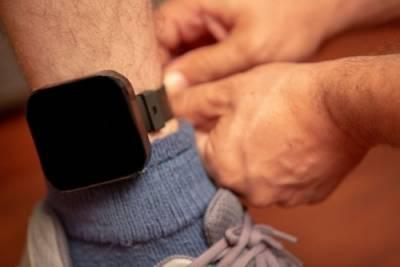Is Electronic Monitoring an Effective Punishment for Crimes?
 When a person is convicted of a crime, they may be sentenced to a period of electronic monitoring, or EM. This means that they will be required to wear an electronic device that tracks their movements and alerts authorities if they leave a specified area. For years, prosecutors and legislators have touted electronic monitoring as an effective alternative to prison that ensures that people comply with requirements put in place by the court while avoiding any further criminal activity. However, a recent report by the ACLU has found that electronic monitoring programs have failed to meet these goals, and they are actually more likely to result in injustice for people who have been accused or convicted of crimes.
When a person is convicted of a crime, they may be sentenced to a period of electronic monitoring, or EM. This means that they will be required to wear an electronic device that tracks their movements and alerts authorities if they leave a specified area. For years, prosecutors and legislators have touted electronic monitoring as an effective alternative to prison that ensures that people comply with requirements put in place by the court while avoiding any further criminal activity. However, a recent report by the ACLU has found that electronic monitoring programs have failed to meet these goals, and they are actually more likely to result in injustice for people who have been accused or convicted of crimes.
Problems With Electronic Monitoring
The use of electronic monitoring has expanded significantly over the past 20 years, increasing by 140 percent between 2005 and 2015. It has become even more prevalent in the years since the onset of the COVID-19 pandemic as officials have attempted to reduce prison populations to limit the spread of the virus. EM is regularly used during pre-trial release, for those who have been sentenced to probation, and when prisoners are released on parole. Those who are being monitored will often face restrictions on where they can go during different times, and they are subject to constant surveillance over their private lives.
The ACLU's report demonstrates that the use of electronic monitoring has not actually made a difference in the areas it is meant to address. Studies have found that EM programs have not affected whether people appear in court when required, and they have not substantially reduced new criminal activity by those who are subject to monitoring. Since they do not actually improve public safety or promote rehabilitation, these programs are more of a method of control rather than a benefit to the community.
In fact, EM programs are much more likely to have a negative effect on people who have been arrested or convicted. While monitoring generally does not affect whether people are arrested for new offenses, it does significantly increase the likelihood that they will be penalized for technical violations. Restrictive supervision sets people up to fail, and they often face violations for activities such as running errands at unauthorized times or accidentally leaving a specific geographic area. They may also face violations for failing to keep an electronic monitoring device charged or connected to WiFi. These violations often lead to additional jail time, even if a person's actions do not affect public safety or indicate that they may be a flight risk.
As with other aspects of the criminal justice system, minorities are more likely to face unfair and unequal treatment when they participate in electronic monitoring programs. Even though Black people make up only 13 percent of the population in the United States, they account for 30 percent of people on supervision, and Black people are 3.5 times more likely than white people to be sentenced to probation or parole. Because of this, they are often more likely to be placed on electronic monitoring. Black people are also much more likely to be cited for technical violations that result in re-arrests and incarceration.
Contact Our Hartford Criminal Defense Lawyer
There are numerous other problems with the ways electronic monitoring is used, including difficulties for people with disabilities, privacy concerns, and excessive financial costs that are often passed on to people being monitored. Rather than providing benefits, these programs often cause more harm to individuals, families, and society as a whole. At Woolf & Ross Law Firm, LLC, we work to protect the rights of people who have been charged with or convicted of crimes, and we advocate for humane, effective solutions that encourage rehabilitation rather than overly harsh punishments. If you are concerned about issues related to electronic monitoring, or if you need to determine how to defend against criminal charges and avoid a conviction, contact our Connecticut criminal defense attorney at 860-290-8690 and schedule a free consultation.
Sources:
https://thecrimereport.org/2022/10/04/aclu-calls-electronic-monitoring-a-failed-reform/
https://www.aclu.org/report/rethinking-electronic-monitoring-harm-reduction-guide






